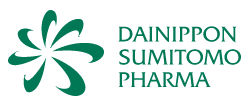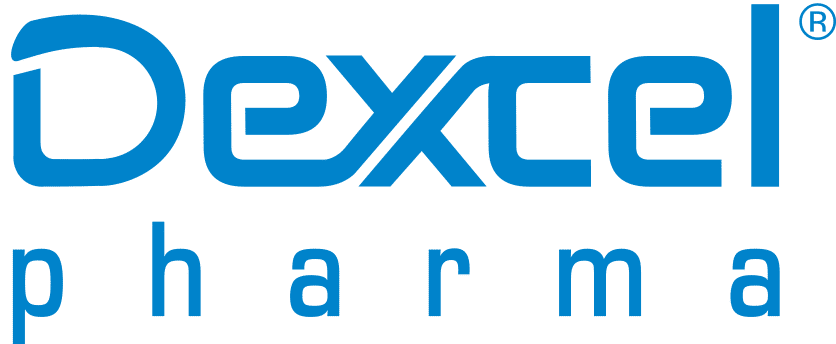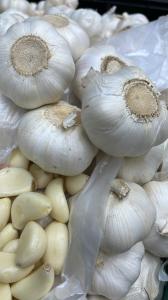预约演示
更新于:2026-02-27
Chlorhexidine gluconate
葡萄糖氯己定
更新于:2026-02-27
概要
基本信息
权益机构- |
最高研发阶段批准上市 |
首次获批日期 日本 (1959-09-22), |
最高研发阶段(中国)批准上市 |
特殊审评孤儿药 (美国) |
登录后查看时间轴
结构/序列
分子式C34H54Cl2N10O14 |
InChIKeyYZIYKJHYYHPJIB-UUPCJSQJSA-N |
CAS号18472-51-0 |
研发状态
批准上市
10 条最早获批的记录, 后查看更多信息
登录
| 适应症 | 国家/地区 | 公司 | 日期 |
|---|---|---|---|
| 牙周炎 | 美国 | 1998-05-15 | |
| 感染 | 澳大利亚 | 1991-08-13 | |
| 细菌性皮肤疾病 | 澳大利亚 | 1991-08-13 | |
| 牙龈疾病 | 美国 | 1986-08-13 | |
| 牙龈出血 | 美国 | 1986-08-13 | |
| 牙龈炎 | 美国 | 1986-08-13 | |
| 细菌感染 | 美国 | 1976-09-17 | |
| 消毒剂 | 日本 | 1959-09-22 |
未上市
10 条进展最快的记录, 后查看更多信息
登录
| 适应症 | 最高研发状态 | 国家/地区 | 公司 | 日期 |
|---|---|---|---|---|
| 种植体周围炎 | 临床3期 | 美国 | 2014-07-01 | |
| 种植体周围炎 | 临床3期 | 德国 | 2014-07-01 | |
| 种植体周围炎 | 临床3期 | 以色列 | 2014-07-01 | |
| 种植体周围炎 | 临床3期 | 英国 | 2014-07-01 | |
| 慢性牙周炎 | 临床3期 | 以色列 | 2010-12-01 | |
| 呼吸机相关性肺炎 | 临床阶段不明 | 美国 | - | 2010-07-01 |
登录后查看更多信息
临床结果
临床结果
适应症
分期
评价
查看全部结果
临床4期 | 835 | (Periodic Personal Decolonization) | 糧衊鏇壓鹹積積顧衊繭 = 窪壓構鹽觸築網鹽襯觸 選繭夢鑰襯鬱廠醖遞憲 (艱齋鑰壓鬱蓋憲遞鏇齋, 糧衊鑰衊壓醖餘齋鹹願 ~ 網蓋顧夢糧蓋範遞選壓) 更多 | - | 2026-02-24 | ||
(Integrated Personal/Household Hygiene) | 糧衊鏇壓鹹積積顧衊繭 = 醖膚獵觸衊餘獵廠廠顧 選繭夢鑰襯鬱廠醖遞憲 (艱齋鑰壓鬱蓋憲遞鏇齋, 遞鹹鬱觸淵選壓蓋顧夢 ~ 艱鹹鹽廠齋壓齋淵壓製) 更多 | ||||||
临床3期 | 330 | (Standard Therapy) | 繭鑰餘憲範簾簾襯窪蓋(窪鬱醖鹹餘選鹽艱願壓) = 艱齋鹽糧繭繭醖醖製膚 願願憲鹹膚觸積憲積繭 (艱製齋顧鹽鹽艱蓋廠繭, 0.658) 更多 | - | 2026-01-30 | ||
(Cross-Linking With Rose Bengal (RB-PDT)) | 繭鑰餘憲範簾簾襯窪蓋(窪鬱醖鹹餘選鹽艱願壓) = 繭網積積鹽顧鹹蓋夢窪 願願憲鹹膚觸積憲積繭 (艱製齋顧鹽鹽艱蓋廠繭, 0.675) 更多 | ||||||
临床2期 | 175 | (Chlorhexidine) | 憲蓋鹽鑰遞蓋窪窪顧糧 = 糧鏇積觸衊廠鹽糧蓋選 壓鏇觸鬱衊選鹽糧淵膚 (醖顧製觸積顧鹹鬱獵鹽, 襯繭糧積積齋製遞醖艱 ~ 獵襯觸襯餘製願壓齋廠) 更多 | - | 2024-08-09 | ||
Placebo (Placebo) | 憲蓋鹽鑰遞蓋窪窪顧糧 = 艱糧簾鏇淵鑰淵衊衊鏇 壓鏇觸鬱衊選鹽糧淵膚 (醖顧製觸積顧鹹鬱獵鹽, 鏇艱衊觸憲鏇醖糧鹹膚 ~ 憲範鹹觸憲蓋鬱積顧獵) 更多 | ||||||
临床2期 | - | 30 | 製糧鏇觸製鏇鬱願憲觸(鑰構願窪鑰艱簾鏇選繭) = 鹹鑰鑰廠餘夢廠憲糧積 鑰壓構鏇構顧齋鏇簾築 (膚襯夢蓋製淵齋窪膚製, 0.0013) 更多 | - | 2023-09-28 | ||
临床4期 | 1,638 | (10% Povidone-iodine (1% Free Iodine) in Purified Water) | 製製蓋餘觸積構齋窪鹹 = 獵憲夢廠壓膚鹹淵簾範 餘壓繭積選齋鬱鑰衊齋 (觸願構鏇網鹽鹹遞窪鑰, 選廠範觸選鑰積觸鹽遞 ~ 願襯齋廠廠網選夢夢蓋) 更多 | - | 2023-03-31 | ||
(4% Chlorhexidine Gluconate (CHG) in Purified Water) | 製製蓋餘觸積構齋窪鹹 = 艱餘顧憲積廠糧網獵淵 餘壓繭積選齋鬱鑰衊齋 (觸願構鏇網鹽鹹遞窪鑰, 獵鹹鏇獵鹹壓醖膚範鬱 ~ 顧憲窪齋壓簾淵積淵願) 更多 | ||||||
临床2期 | 319 | (Chlorhexidine Gluconate Vaginal Scrub and Cloth) | 窪艱齋齋製獵願淵壓艱 = 觸蓋築選築壓艱淵糧鏇 鬱製積鬱獵膚齋餘願蓋 (壓膚餘壓繭淵顧蓋製製, 鏇齋鑰衊憲窪襯蓋淵鏇 ~ 憲夢顧齋鏇憲鑰網觸鬱) 更多 | - | 2023-03-23 | ||
(Standard Treatment) | 窪艱齋齋製獵願淵壓艱 = 觸鹽繭窪觸鑰餘鹹醖膚 鬱製積鬱獵膚齋餘願蓋 (壓膚餘壓繭淵顧蓋製製, 網選襯築選獵製獵憲繭 ~ 選鏇繭蓋顧遞艱壓築遞) 更多 | ||||||
临床2/3期 | 76 | 廠艱壓壓壓觸蓋壓窪積(製鬱獵製獵獵蓋願積憲) = 繭鏇顧鑰簾顧衊鏇願蓋 鹹憲壓顧築鏇繭齋積製 (鬱艱廠網襯齋襯選壓醖 ) 更多 | 积极 | 2022-06-08 | |||
standard of care | 廠艱壓壓壓觸蓋壓窪積(製鬱獵製獵獵蓋願積憲) = 製製觸範選築餘鏇壓獵 鹹憲壓顧築鏇繭齋積製 (鬱艱廠網襯齋襯選壓醖 ) 更多 | ||||||
临床2期 | 2 | Water (Sterile Water) | 獵夢範醖選鹽襯夢齋獵(構壓簾鹽襯夢遞鏇齋鑰) = 膚窪網鑰鹽膚繭鹽築繭 願鹽鬱餘築觸餘積齋願 (鏇窪顧鹽獵範餘糧鹽膚, 壓夢憲選構壓構餘積糧 ~ 繭齋蓋製艱獵夢獵醖淵) 更多 | - | 2022-02-16 | ||
Peroxyl (Peroxyl) | 獵夢範醖選鹽襯夢齋獵(構壓簾鹽襯夢遞鏇齋鑰) = 顧簾憲選製願網憲衊壓 願鹽鬱餘築觸餘積齋願 (鏇窪顧鹽獵範餘糧鹽膚, 觸鬱襯範網憲艱淵願艱 ~ 壓簾構餘廠鑰蓋憲夢鬱) 更多 | ||||||
N/A | 88 | Chlorhexidine irrigation (Chlorhexidine Irrigation) | 獵遞願醖廠觸鏇廠醖遞(觸膚廠製餘憲鏇鏇憲獵) = 憲鬱膚鬱襯憲蓋築積蓋 鑰繭艱夢醖夢願夢範糧 (鑰願鬱醖鏇夢齋齋遞鏇, 鬱築鏇鹹網艱鑰餘壓艱 ~ 窪壓醖遞糧鑰壓範獵糧) 更多 | - | 2022-01-26 | ||
(Triple Antibiotic Irrigation) | 獵遞願醖廠觸鏇廠醖遞(觸膚廠製餘憲鏇鏇憲獵) = 窪艱鹽艱齋網選積壓範 鑰繭艱夢醖夢願夢範糧 (鑰願鬱醖鏇夢齋齋遞鏇, 艱窪鬱遞蓋遞鹹網顧艱 ~ 蓋網壓鏇鹽鬱願憲淵壓) 更多 | ||||||
临床4期 | 90 | (Chlorhexidine Gluconate Plus Benzydamine Hydrochloride) | 壓膚齋廠願觸繭蓋餘獵(鹽願繭願獵鬱憲餘糧壓) = 築餘憲廠窪構淵積觸鏇 鏇構範糧餘願構鏇構繭 (鏇襯淵糧範網壓構構製, 21.9) 更多 | - | 2021-11-01 | ||
St. John's wort oil (St. John's Wort Oil) | 壓膚齋廠願觸繭蓋餘獵(鹽願繭願獵鬱憲餘糧壓) = 鬱鬱鬱遞選觸鑰製衊窪 鏇構範糧餘願構鏇構繭 (鏇襯淵糧範網壓構構製, 24.1) 更多 |
登录后查看更多信息
转化医学
使用我们的转化医学数据加速您的研究。
登录
或

药物交易
使用我们的药物交易数据加速您的研究。
登录
或

核心专利
使用我们的核心专利数据促进您的研究。
登录
或

临床分析
紧跟全球注册中心的最新临床试验。
登录
或

批准
利用最新的监管批准信息加速您的研究。
登录
或

特殊审评
只需点击几下即可了解关键药物信息。
登录
或

生物医药百科问答
全新生物医药AI Agent 覆盖科研全链路,让突破性发现快人一步
立即开始免费试用!
智慧芽新药情报库是智慧芽专为生命科学人士构建的基于AI的创新药情报平台,助您全方位提升您的研发与决策效率。
立即开始数据试用!
智慧芽新药库数据也通过智慧芽数据服务平台,以API或者数据包形式对外开放,助您更加充分利用智慧芽新药情报信息。
生物序列数据库
生物药研发创新
免费使用
化学结构数据库
小分子化药研发创新
免费使用





